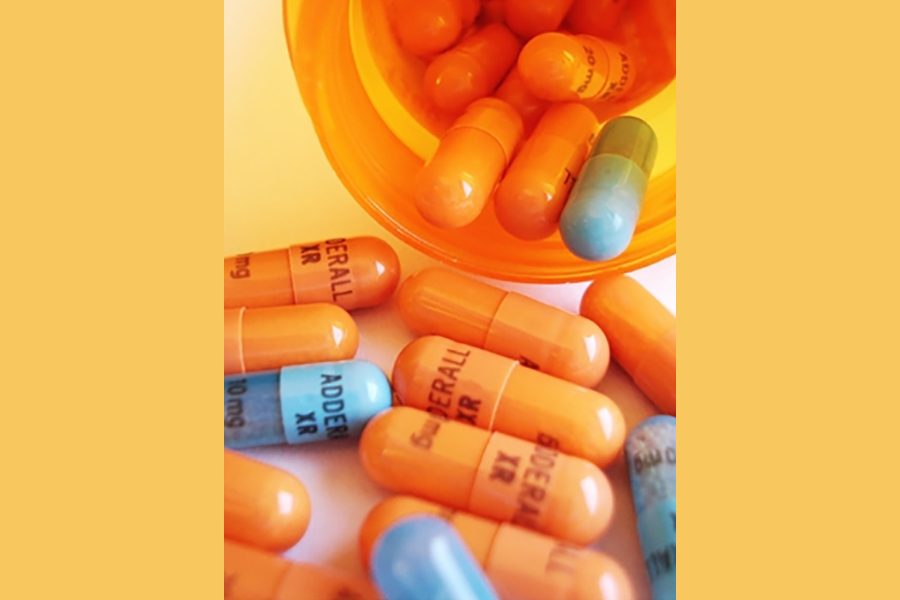Adderall, for Better or Worse?
Adderall is taken by many nowadays as a means of improving concentration, but what happens when it’s used in a wrong way?
October 24, 2017
Adderall is a medication used to treat symptoms of attention deficit (hyperactivity) disorder (ADD/ADHD). According to addictionblog.org, “Adderall works by increasing the amount of dopamine and norepinephrine in the brain.” Norepinephrine (NE) and dopamine (DA) are neurotransmitters, and while they aren’t the only ones involved in ADD/ADHD, they’re significant in keeping track of one’s focus, attention, and train of thought.
DA, simplified, is the chemical in the brain that makes a person “feel good.” Many other medications, such as antidepressants, also cause an increase in DA, as it’s meant for those whose brains don’t produce as much due to mental divergences. Unfortunately, this has caused an increase in people, who don’t need these medications, that will abuse the medicine as a way to get a rush.
Adderall is a schedule II controlled substance due to its’ potentially highly addictive nature, although it’s shown to have medical benefits. This makes it incredibly difficult to get a hold of; most people need a professional to evaluate their symptoms, and monthly or bimonthly check ups to make sure they aren’t getting addicted. There have even been personal stories published of patients who have outright been refused Adderall due to its’ addictive risks.
The biggest reason psychiatrists and doctors are so cautious with prescribing Adderall is because of the abusers of the medicine. Full time college students have been known to use the medication as they hear about the benefits; it increases focus and makes one less tired, which sounds helpful when a student is up until five in the morning working on an essay. But Adderall can quickly become addicting. The immediate benefits seem to fade after some time, which prompts the user to take it again, and again and again, until, without realizing, they become dependent on it. And thus the addiction starts.
Adderall is a medication meant for those that struggle with the symptoms it improves, as all medications are. And like any other medication, when Adderall is used wrongly, it can have devastating effects. When Adderall is used wrongly, it can have devastating effects. The medicine is used to improve the central nervous system to those who struggle with focusing or mental responses in their day to day lives, so when someone who doesn’t have these problems abuse the medication, it boosts their already stable central nervous system, which can turn around and make it worse. Seizures, hypertension and restlessness, strokes, and psychosis are all adverse side affects of abusing Adderall.
One of the worst reported side effects of abusing Aderall is sudden death. It’s reported so little that it’s not seen as a threat, but it has happened. Not only does Adderall affect the nervous system, it affects the cardiovascular system as well. It causes the heart to beat rapidly, and raises blood pressure, which causes the blood supply to clog, which then causes the heart tissue to start deteriorating. Most of the reported cases of sudden death have been from people with underlying heart conditions, but a few have been from people with no heart problems at all.
All in all, follow the golden rule of medicine: “If you don’t need it, don’t take it.” Not only does it cause more of a struggle for the users who do need it, but it also endangers those who don’t. Don’t try and fake symptoms to the doctor, don’t buy off a street vendor, and definitely don’t steal from your siblings. Be mindful, but if you’ve taken it a few times and are concerned about addiction, please go see a doctor. They will care more about your physical and mental health than the fact you popped the wrong pill one too many times.





